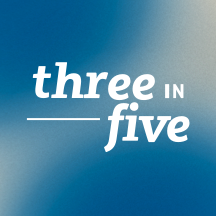Steve Peacher: Hi everybody thanks for dialing in to this episode of “Three in Five,” I'm Steve Peacher, President of SLC Management and I’m really pleased today to be joined by Lauren Chesney, who is the Managing Director in our HR department at SLC Management and is also very involved in our diversity, equity and inclusion initiatives. Lauren, thanks for taking the time today.
Lauren Chesney: Happy to be here.
Steve Peacher: Unfortunately, the asset management industry has not historically covered itself and glory, shall we say, when it comes to diverse workforces. And why do you think it's been so difficult for the asset management industry to develop a more diverse workplace?
Lauren Chesney: I think it's a complex issue and probably hard to do it justice in just a few words, so I’m going to focus on a couple things bring to mind, so I think like many industries, asset management industries has its fair share of both conscious and unconscious bias influencing hiring decisions. Again, I don't think too different from many industries, I think one of the things our industry, perhaps has an image issue. So, if I’m a talented women or person from another underrepresented group, I want to choose a career or industry where I think I can be successful and be welcomed. And maybe in the past our industry has not felt that way or has perhaps be perceived as exclusionary or medians exclusionary. We've even heard from our community partners that for some young people, the only exposure they really had to our industry is via popular culture. Like movies, like “Wolf of Wall Street,” and so that sort of thing can portray the industry as a less hospitable place, probably for people of difference. And I think it can be some additional point highly competitive to get into our industry, and so, if you've been given opportunities during college to do like an internship with an asset manager or investment company because maybe your uncle works there, or you have a neighbor who's in the industry, we're probably perpetuating the vicious cycle of hiding the same sorts of people.
Steve Peacher: You know, there can be a variety of viewpoints and sometimes skepticism within a workforce on DE&I initiatives and how have you approached promoting education and discussion of these issues in an open manner? And what do you say to somebody who says well don't we always want to hire the best person for position, regardless of the considerations?
Lauren Chesney: Yeah, so I’m going to start with the second piece of the question, because that statement always bothers me, I think that that insinuates that by considering diversity we wouldn't be hiring the best unless the best means a white male. And even to unpack what “best” means, that can be subjective. So is the best little higher than the past success with or the candidate the hiring manager feels most comfortable with, or is a person with 10 years of experience over six? Because we know that someone can be in the same job for 10 years and repeat the same experience 10 times over versus someone else can be in a job for six years and had more eclectic experiences which have accelerated their development, so I think we've got to be careful about that. And also that we are considering in our criteria that there's inherent value in difference, so that should be part of our criteria and part of our thought process.
To go back to the first part of that question around education within SLC Management around a three-month mandatory diversity equity inclusion learning program that leverage a social learning platform, and we encourage employees to engage with the content asked questions. And then we actually run some discussion sessions as well, which are still running this is a way to give employees a chance to share what's on their mind to talk about the content and to challenge one another.
Steve Peacher: In addition to these education initiatives what are some of the other strategies that you think are the most effective when it comes to improving the diversity of workforce within an investment manager?
Lauren Chesney: So that's a big one, I think that if there was an easy solution, we'd all be doing it right now, I hope we'd all be doing it right now. And I think that as an industry, we are moving in the right direction, but I think that there's so much changes required at different levels, so I think society and society there needs to be changed because I don't think this is just a it's, not a single industry it's, not a single profession, I think it's across the board that there are challenges in this regard. But we focus on our industry, specifically, I think there's real power for us to influence change and leveraging the power of peer pressure and holding each other accountable so, for example, the CFA institute's working on a DE&I code that would have signatories make certain commitments across their practices. Some of our institutional investors are creating diversity scorecards, for example, and the consultants are also holding organizations accountable, so I think that, from an industry perspective we're starting to see a ton of movement in that regard. And then, an organization level I think there's so many things that we can be doing and there's so many different strategies that can be sometimes difficult to focus and pick the ones that would have the most impact, but, for example. Having more transparency of data on people practices so, for example, what does our representation look like and sharing that information what criteria do you look out for promotions, and just embedding DE&I lens and all of our people practices so it's not a separate set of activities it's just part of how we manage our organization, how we manage our employees and we ensure that we're leveraging the full capabilities of our employees and also reaching untapped pools of potential talent.
Steve Peacher: Well, as you're not discussed so much of what we're doing is about expanding the pool of candidates, so that we're increasing the probability that the most qualified candidate, whatever that means also happens to be interesting. Separately, a personal question, I know that you've said that during the pandemic you have you spent more time hiking and enjoy that. My question is having done a lot of hiking in New England myself over the years, have you found that you've gotten lost yet on a hike?
Lauren Chesney: That's a great question so I’ll see that I started out my hike were on paved paths for that very reason, but this past Sunday actually went on a hike that took me off the beaten path. And I had made sure that I went with a group because, as I said, quite tough to navigate and make the trail has indicated, with me to 10 miles ends up being 13 right into state park and we only had to backtrack once, which was good. But it was a definitely on my mind, and so, making sure that there's somebody in the group that's a good navigators like top priority, because I have that fear of being lost, and in fact there are a lot of jokes about you know, bringing blankets and food in case we have to camp overnight, but we need to okay we're good.
Steve Peacher: Well, you got some extra steps in with an extra three miles off the trail. Thanks so much for taking the time and discussing DE&I, it's a critical topic and I’m sure we'll be touching on more in future “Three in Five” podcasts. And thanks for everybody for listening in to this session of “Three in Five.”
This podcast is intended for institutional investors. The information in this podcast is not intended to provide specific financial, tax, investment, insurance, legal or accounting advice and should not be relied upon and does not constitute a specific offer to buy and/or sell securities, insurance or investment services. Investors should consult with their professional advisors before acting upon any information contained in this podcast. This podcast may present materials or statements which reflect expectations or forecasts of future events. Such forward-looking statements are speculative in nature and may be subject to risks, uncertainties and assumptions and actual results which could differ significantly from the statements. As such, do not place undue reliance upon such forward-looking statements. All opinions and commentary are subject to change without notice and are provided in good faith without legal responsibility.
SLC-20221019-2523022







